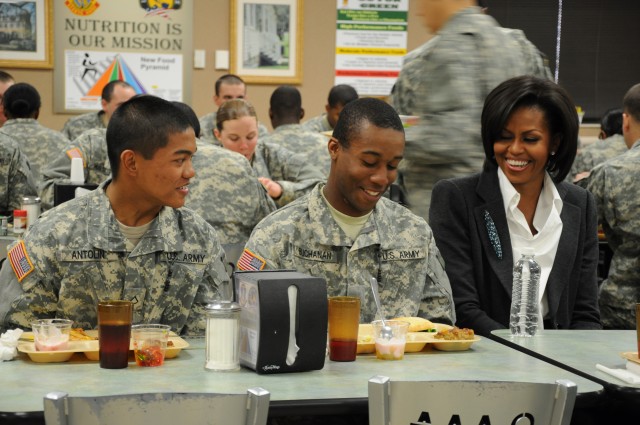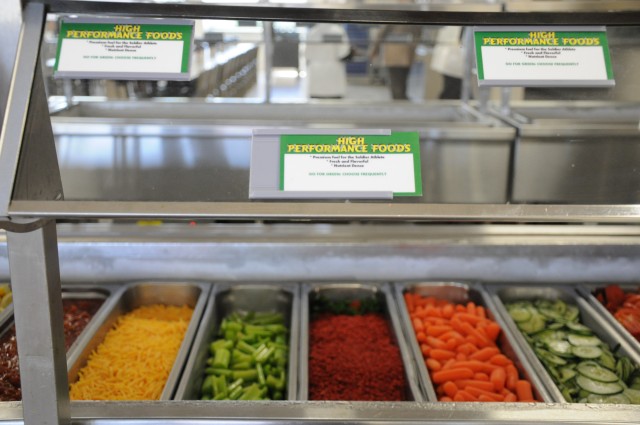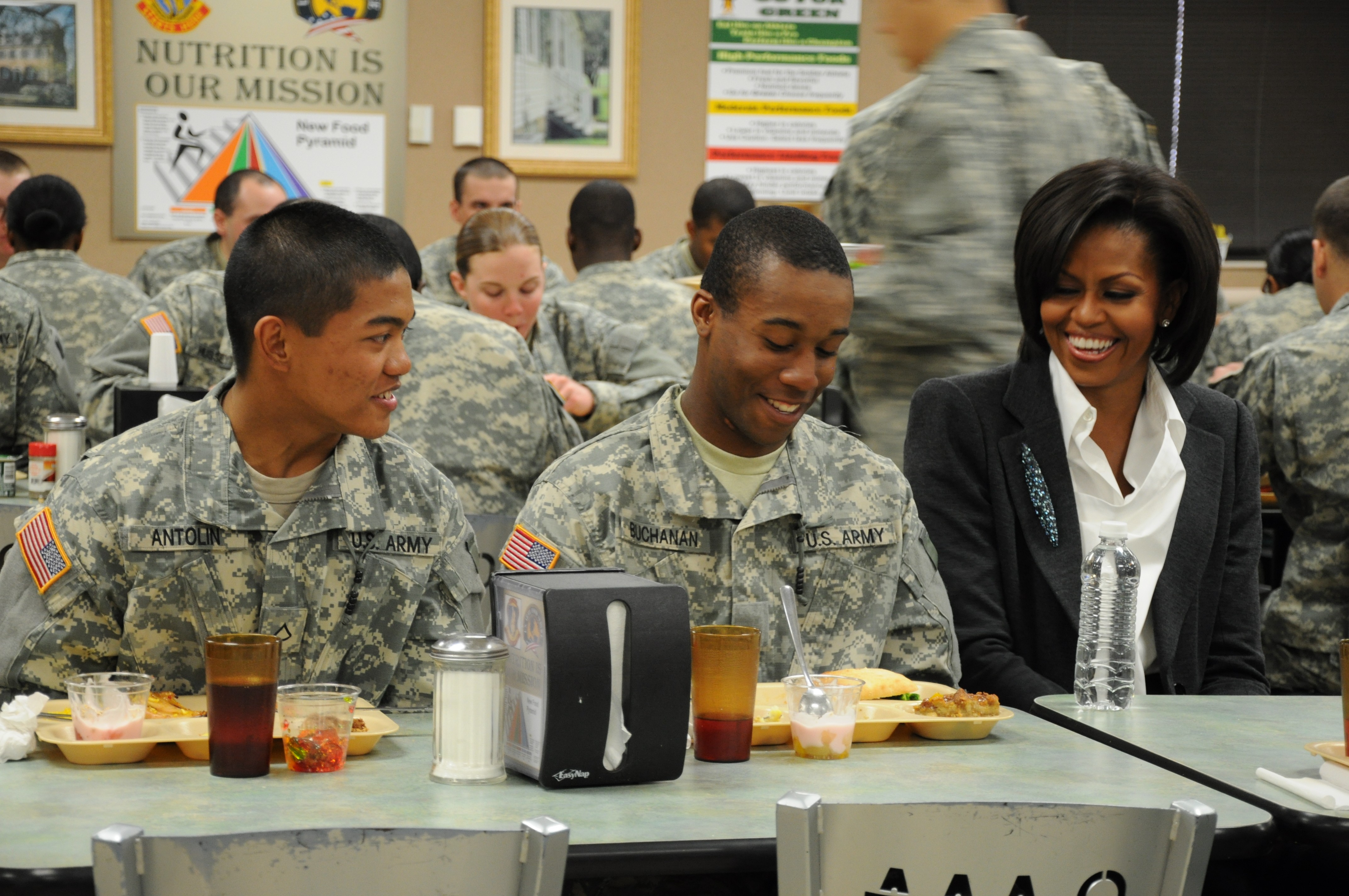FORT JACKSON, S.C. -- First Lady Michelle Obama visited Fort Jackson Jan. 27 to learn from Army leaders about how childhood obesity and physical inactivity affects military readiness and what the Army does to combat these effects.
As one of five Army installations to offer Basic Combat Training, Fort Jackson has been on the frontline of implementing the Soldier Fueling Initiative, which emphasizes healthful nutrition habits for Soldiers. As part of the program, dining facilities changed their menus, adding performance-focused menu items and healthful beverage options. In addition, a new labeling system at the DFACs helps Soldiers identify optimal food choices.
"On the surface, the DFAC menus may look quite similar," said Lt. Col. Sonya Cable, Training Support and Schools Directorate, who briefed Obama on the initiative during her visit to the 2nd Battalion, 39th Infantry Regiment DFAC. "One of the biggest changes is in preparation; for example, switching from frying to baking. Another (change) is using more whole grain or multigrain options. Additional changes include removing soda and including beverages that will hydrate our Soldiers-in-training."
The first lady's first stop was the Drill Sergeant School, where she was briefed by Lt. Gen. Mark Hertling, TRADOC deputy commanding general for Initial Military Training, and TRADOC experts on health and fitness. Obama founded the "Let's Move!" campaign, which focuses on overcoming the challenge of childhood obesity.
Before the briefing, Obama said she was excited to learn how the military deals with those challenges.
"The military can model so many wonderful solutions," Obama said. "And I am excited about making the rest of the country aware of not just the challenges we face, but the work you do to get these young recruits and trainees back on track, because a lot of people around the country could use the same kind of support."
Hertling said that 75 percent of America's youth are ineligible to join the military for a variety of reasons. Out of those ineligible, 17 percent are disqualified because of obesity.
He outlined the problems obesity creates in recruiting new Soldiers and the challenges physically unfit Soldiers face in Basic Combat Training.
"Our challenge is to fix it quickly," Hertling said.
Hertling told Obama that the Soldier Fueling Initiative has been effective.
"What we're seeing is, the choices of the Soldiers are changing in basic training and they're feeling better, and we get a lower attrition rate," Hertling said.
After the meeting, Obama visited the 2-39th dining facility, where she not only had a chance to see for herself what food options are available, but also to talk to drill sergeants and Soldiers about nutrition.
Barbara Johnson, manager of the 2-39th DFAC, said the goal was to present the first lady with an accurate impression of what Soldiers eat on a daily basis.
"Our task was to put out one of the meals from the 21-day cycle menu," Johnson said. "It was nothing different. We didn't do (anything) extra. It was a meal we would serve on a day-to-day basis."
The four entrAfAe choices that day were baked salmon, oven-roasted chicken breast, honey mustard ribs and lasagna Florentine. Johnson said only the ribs were categorized as a performance limiting food item, giving the Soldiers three healthful entrAfAe options.
Staff Sgt. Tayibat Agbabiaka, a drill sergeant with Company E, 2-39th, said during her conversation with Obama she was able to share the experiences she has as a drill sergeant, both with regard to seeing Soldiers come into the Army out of shape as well as the challenges she faces to eat well.
"It is definitely hard to eat right as a drill sergeant, because sometimes we're trying to get the Soldiers (around); we don't get to eat breakfast or we don't have time to eat lunch," Agbabiaka said.
One of the Soldiers who had a chance to meet Obama, Pfc. Michael Vasquez, Company A, 2-39th, said he had been physically active before enlisting and had considered himself a sensible, albeit picky, eater.
"Once I got here, I started eating more vegetables, and I started using the labels more, because I always thought I was eating right, but it turns out some things that I thought were the right thing to eat, they weren't," Vasquez said. "So the labels helped a lot."
For Pvt. Kimberley Welsh, Company E, 2-39th, the consistency of regular physical training and planned, nutritious meals has proven beneficial, she said.
"I've actually gained weight, but it's not fat weight, it's muscle. I've toned up a lot, Welsh said. "I feel a lot better about myself, especially physically."
One of the things Vasquez said he will take away from meeting Obama is the call to pass along his knowledge about eating right and exercising to family and friends, "not because she said it, but because I could see how passionate she was about it."




Social Sharing